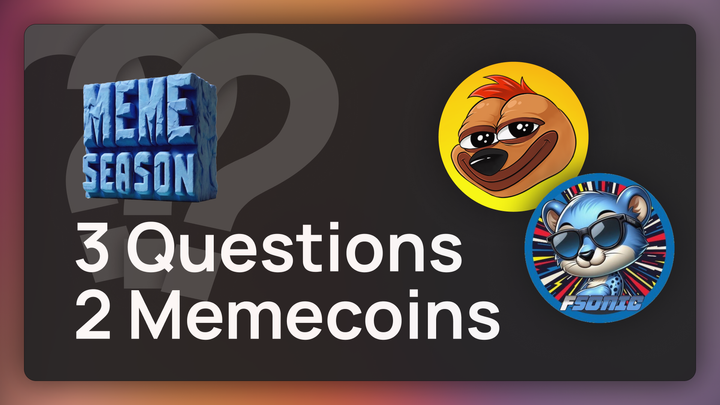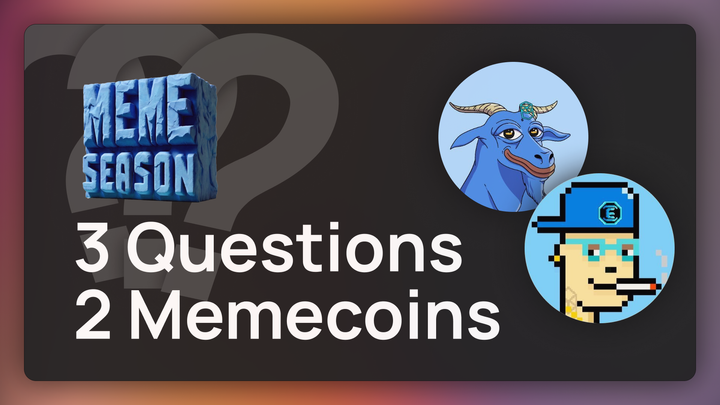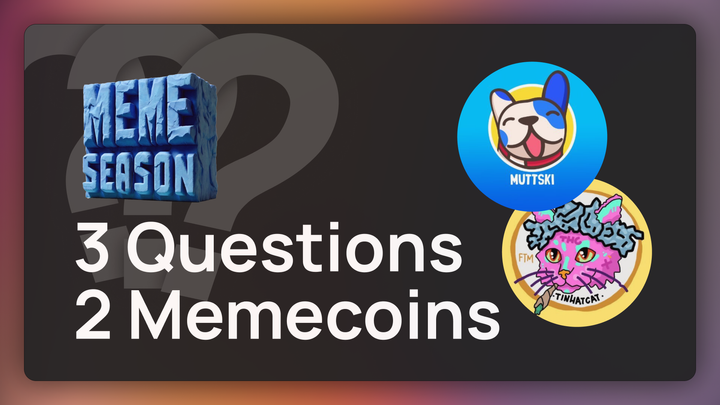Charles — Fantom Community Spotlight
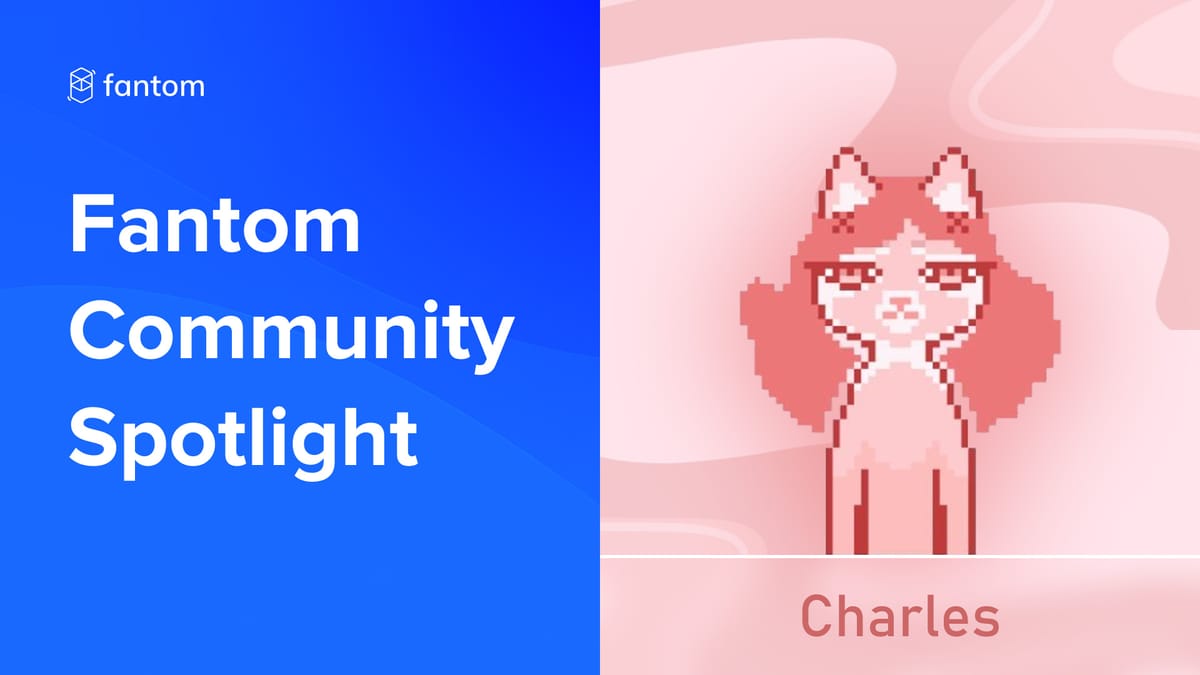
Welcome back to the Fantom Community Spotlight, where we shine a light on the amazing individuals who make up our vibrant community. This time, we’re featuring Charles!
Read about the influence of his economics background on his crypto journey, his work with the Byte Masons, and his views on DeFi’s biggest challenges.
What’s your background?
I am a 4th-year economics student and my focus has recently been on the effects of both monetary and fiscal policy. I have also been a bartender for 4 years!
My motivation to study economics grew from a desire to understand the effects of government actions and the central bank, as I had basically no knowledge of these concepts previously.
After finishing high school, I spent six months backpacking around with my best friend, and during this time, I came across a book called Freakonomics.
The book introduces ideas around incentives, consumer preferences, and economic analysis to various areas and situations in a really compelling and interesting way. It provided me with a preliminary understanding of how economists think, and coupled with my curiosity for macroeconomic concepts, I was sold.
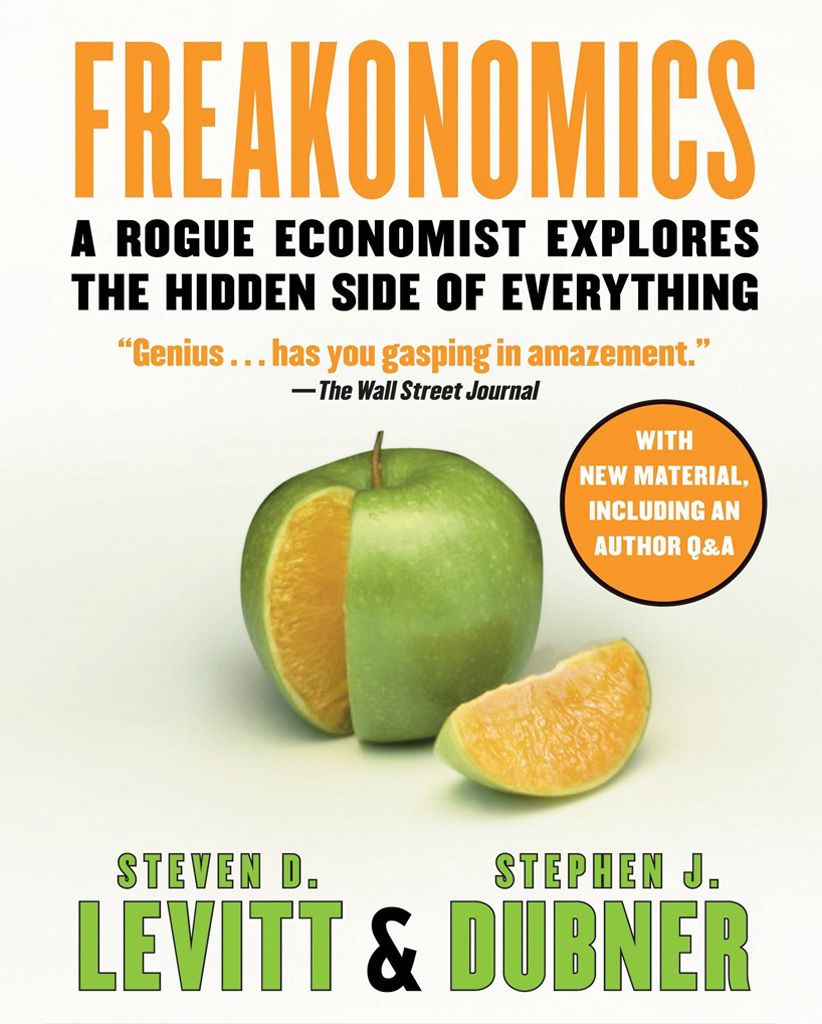
Fortunately for me, it turns out I actually really enjoy it as a field of study.
Has your economics background helped you on your crypto journey?
Absolutely. The world of crypto is filled with mini-economies consisting of consumers, firms, and even central bank-type entities. The way these participants behave in different scenarios is precisely what economics is all about.
Game theory, in particular, is an incredibly useful area of study as it teaches us to think about decision-making given various incentives available for all the players involved. For instance, what is the likelihood of person A choosing decision B given payoffs X, Y, and Z? How do these payoffs change when other players take certain actions?
These lessons are invaluable when it comes to navigating markets, especially those in crypto. In addition to my economics major, I am also pursuing a minor in finance, which is arguably even more beneficial when working in DeFi, for obvious reasons.
And how did you first get into crypto?
In late 2020, I witnessed Bitcoin's ascent to the $60k range with amazement, prompting me to think, “maybe this is something I should be paying attention to”. Until that point, I hadn’t had much exposure to crypto; it was early in my degree and I hadn’t been paying too much attention to financial markets in general.

I had a friend who was getting into NFTs who had tried to red pill me during the beginning of the Covid lockdown, but my interests were elsewhere at the time. (He’s never going to let me live that down.) I finally read the Bitcoin whitepaper at the start of 2021, and as they say, the rest is history.
It was around this time I also started to really dig my heels into my studies, those being economics and financial markets. (I am also doing a minor in finance.) Bitcoin fascinated me as a social experiment, and as I learned more about the history of economic and financial systems, the importance of self-custody and self-sovereignty became increasingly apparent.
I went on to dive into Ethereum and smart contracts and eventually made my way into DeFi. I would also be remiss if I didn’t give a shout out to Finematics; his videos really made an impact on me in my early days.
So what exactly fascinates you about crypto, or specifically DeFi?
Tough one! The list is so long… At the core of my interest lies the elimination of intermediaries and third parties from various markets.

In financial markets, friction plays a significant role in determining outcomes. Asymmetric information is a prime example of friction, where one party has more information than the other, leading to the latter being taken advantage of.
Present solutions to this issue entail forced divulgence of personal information and the imposition of risk premiums on parties with lesser information, both being inefficient methods.
Cryptography presents us with the ability to design systems that minimize friction at a fraction of the cost while restoring essential values such as self-custody and self-sovereignty to the masses.
We can build a more efficient, less expensive, and genuinely decentralized market system using this power, be it financial or otherwise.
Did you have an experience with crypto that convinced you of its potential?
It’s hard to narrow it down to just one, but my first few on-chain transactions hold a special place in my memory.
I vividly recall sending some ETH to a friend who was in a different country for the first time and thinking, "I just transferred an asset to someone across national borders without sharing any personal information about either of us and without depending on any third party for verification.” It was an awesome moment that left a lasting impression.
Another memorable moment was when I learned about the mechanics of liquidity pools in AMMs. It was remarkable to discover an autonomous mechanism that could determine a market price purely through supply and demand and relatively simple mathematical calculations. To this day, I remain deeply interested in AMM development and consider it one of the most exciting areas of DeFi.
Could you tell us about OATH and your role there?
The OATH ecosystem is composed of the Reaper.Farm, Ethos Reserve, and Digit protocols, which have been built and maintained by the Byte Masons development collective. I’ve been contributing to the ecosystem in various ways since last summer.
I started off by writing articles for the Byte Masons educational website Learn (which was later acquired by Blockbytes), and my work was well received. Over the past year, I have gradually added value to the community and (I believe) established myself as a valuable asset. Currently, my role is focused mainly on community engagement, such as organizing media events and creating educational content for the community.

Now that I’ve completed my studies for this year, I will be looking to take on additional responsibilities and develop an area of the ecosystem that I can manage myself and that will bring value to the community. The opportunity to devote my full attention to that which I am truly passionate about really excites me.
A crucial part of working in crypto is to be proactive and take the initiative with anything that you think needs to be done. By doing good work, you will earn recognition from those around you. There is no one to assign you tasks or deadlines. It’s up to you to create them yourself and be disciplined and diligent in meeting your objectives.
And you are also the co-host of a podcast called Big Red?
Yes! The idea for Big Red was initially SAMSoN's.
As avid supporters and builders within the network, we wanted to create a platform to discuss Optimism-native projects, as well as other related topics, and provide educational content to those who are less familiar with Optimism.
I co-host the show with Justin Bebis, and every two weeks, we select a topic and speak with builders who are actively working on it. It's a straightforward concept, but it’s proven to be a really enjoyable and educational experience.
We’re only seven episodes deep, but I’m looking forward to growing our audience!
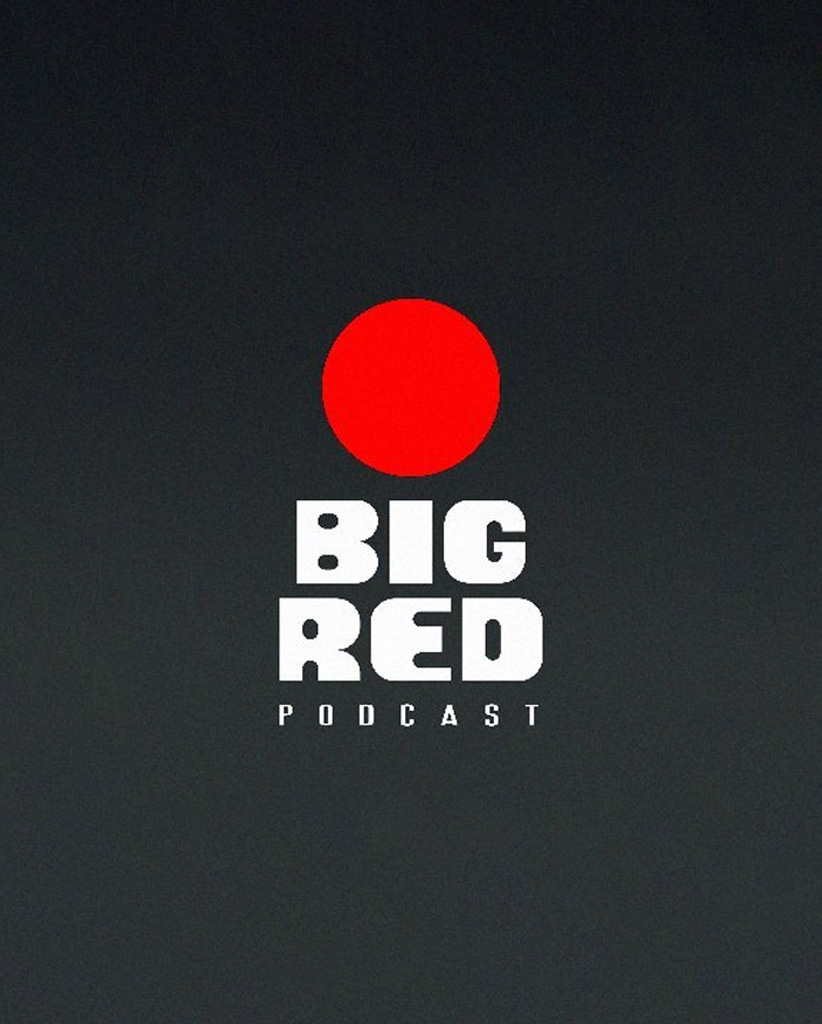
I would also like to give a special thank you to our small community of listeners, you legends!
Throughout your crypto journey, what has your experience been with Fantom?
In my opinion, Fantom has offered the best user experience in DeFi, hands down. Using Fantom for the first time was a dream and it continues to be above the rest when it comes to UX.
I discovered Fantom during the bull run in late 2021 and regret not having found it earlier. At the time, I was paying insanely high gas fees on other chains, and when I came across Fantom, I thought to myself, "I'm never leaving."
I can't recall exactly how I learned about Fantom, but like many other users, I believe my journey started with Tomb Finance. Tomb led me to yield aggregator Reaper Farm, which remains one of my favorite protocols. I soon after discovered FTM Alerts, and I was instantly drawn to the Fantom community's culture. (Shoutout to Austin and the old FTM Alerts crew for being positive forces in the industry.)
Fantom was where I transformed from a beginner to a (somewhat) experienced DeFi user. Its ecosystem will forever be my most impactful tutor, and it sets the gold standard for user experience.
More generally, what do you see as the DeFi industry’s biggest challenges?
Great question, and one that’s really hard to give a short answer to, but here goes. Firstly, and most obviously, regulatory issues are a major concern.

Appropriate and non-restrictive legislation is crucial for the industry to grow, but to me, it seems like the values that most governments prioritize are completely incompatible with those crypto's ethos. Self-sovereignty, self-custody, and the separation of money and state aren’t values I can see many governmental bodies getting behind. To somehow overcome this is critical for the industry's future.
The other two elephants in the room are scalability and security. I firmly believe they will be conquered in time, but we're not yet at a point where we can “onboard the next billion people”. Even during the peak of a bull market, liquidity is too thin, security practices are too loose, and profitable businesses are too few.
The technology needs time to improve, protocols need time to evolve, and markets need time to mature before significant market share can be taken from traditional finance. Despite all that, I think S(ome)GMI!
And have you personally faced any challenges in DeFi yourself?
Yes, the first challenge that I encountered was getting scammed during my first 2 months in DeFi. Despite it being a fairly sophisticated scam, it was a tough lesson to learn, but honestly, it made me less gullible. Unfortunately, in this space, a certain amount of jadedness is necessary to navigate it successfully. Naivety is not rewarded at any level.

Another ongoing challenge that I think everyone faces is learning to think skeptically about DeFi businesses/protocols/companies.
When you first start, every protocol seems like a godsend, and any new "value capture mechanism" or "flywheel" appears to be the next big thing that will make you rich. But to be successful in DeFi, you need to think like a serious start-up investor and be critical of anything that deserves criticism.
This requires some level of financial knowledge, but if you're serious about DeFi, you need to take the time to understand where value actually accrues and whether you are at the receiving end of that value or not.
Who are some people you would recommend to follow on Twitter?
Oh, there are so many!
- Macroeconomics: Alfonso Peccatiello, Megan Greene
- Crypto Research: Revelo Intel, Small Cap Scientist, Jedi Blocmates
- Thought-provokers: Yuvi, Binji
- Shitposters: Corval, Linn
Thank you! Any final thoughts to share?
First and foremost, I want to express my gratitude to the Fantom Foundation for giving me this opportunity to share my thoughts.
Now, to anyone who is considering getting involved in crypto and DeFi, I urge you to take the leap and just do it! I understand that it can be daunting to enter this space and express your opinions, but trust me when I say that now, more than ever, the crypto world needs passionate, hardworking, and well-intentioned individuals.
The possibilities to contribute to this ever-evolving field are endless, and there is no wrong way to get started. Regardless of your experience or background, you have the power to make a meaningful impact in this industry.
SEIZE THE MEMES OF PRODUCTION.
Thank you to Charles for featuring in our Community Spotlight! Make sure to drop @charlie_defi a follow on Twitter.

